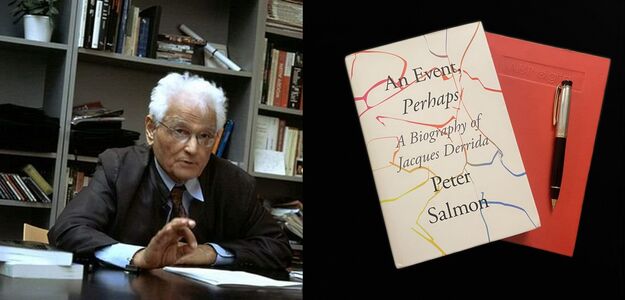A slim intellectual Life effectively summarises Derrida’s thought and the origins of deconstruction.
It was as much his style as the concepts it supported that seduced, or repelled, the Anglo-American academy and made of deconstruction – the name Derrida had given to his non-method – such a teeming and contentious field, especially in the 1970s and 80s. As early books such as Writing and Difference and Of Grammatology were translated into English, Derrida embarked on an extraordinarily energetic transatlantic career.
His work turned more formally audacious: The Post Card (1980) was a delirious study of Socrates, Plato and Freud, and a barely concealed account of his long affair with the feminist philosopher Sylviane Agacinski.
French theory, essayed a real portrait of the man himself and acknowledged the sheer adventure of Derrida’s work. Such a book might situate the life of that work in Derrida’s unceasing feeling – when he thought about home, family or philosophy – of being haunted. “I think about nothing but death,” he wrote.
An Event, Perhaps is certainly an event. It appears in an era when, not for the first time, varieties of critical thought are being accused of a contradictory array of culture-war crimes and political upheavals. Derrida indoctrinating this new generation in feminist interpretation, Marxist philosophy and deconstruction. The Death of Truth, went so far as to link the academic ascent of French theory – now somewhat antique a reference, surely, as well as arcane – to the rise of Narendra Modi.
Derrida had been through all of this before and parodied his opponents’ position thus: “So you ask yourself questions about truth. Well, to that extent, you do not as yet believe in truth.” It was not true. His writing is a model of the most careful reading – and a tireless lesson in how truth and lies are made.

